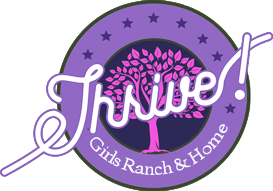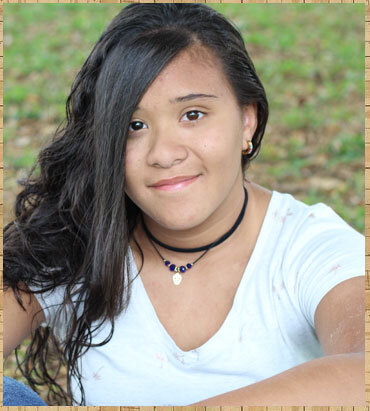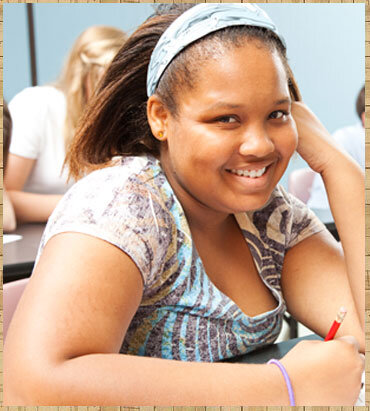Thrive Girls Ranch and Home understands that you want to find help for your struggling teen girl who may be suffering with depression, anxiety or life-controlling, self-destructive, risky behaviors and attitudes. We’re here to help at our affordable, specialized boarding school program, set in a safe, positive and structured environment near Austin, Texas. We provide therapeutic counseling to each individual girl, plus daily learning experiences and activities that nurture a true change of heart–and help her thrive in life.
Therapies Approved by the AACAP
Psychotherapy is a form of psychiatric treatment that involves therapeutic conversations and interactions between a therapist and a child or family. It can help children and families understand and resolve problems, modify behavior, and make positive changes in their lives.
There are several types of psychotherapy that involve different approaches, techniques, and interventions. At times, a combination of different psychotherapy approaches may be helpful. In some cases, a combination of medication with psychotherapy may be more effective.
- Acceptance and Commitment Therapy (ACT) helps a child understand and accept their inner emotions. ACT therapists help children and teens use their deeper understanding of their emotional struggles to commit to moving forward in a positive way.
- Cognitive Behavior Therapy (CBT) helps improve a child’s moods, anxiety, and behavior by examining confused or distorted patterns of thinking. CBT therapists teach children that thoughts cause feelings and moods which can influence behavior. During CBT, a child learns to identify harmful thought patterns. The therapist then helps the child replace this thinking with thoughts that result in more appropriate feelings and behaviors. Research shows that CBT can be effective in treating a variety of conditions, including depression and anxiety. Specialized forms of CBT have also been developed to help children coping with traumatic experiences.
- Dialectical Behavior Therapy (DBT) can be used to treat older adolescents who have chronic suicidal feelings/thoughts, engage in intentionally self-harmful behaviors, or have Borderline Personality Disorder. DBT emphasizes taking responsibility for one’s problems and helps the person examine how they deal with conflict and intense negative emotions. This often involves a combination of group and individual sessions.
- Family Therapy focuses on helping the family function in more positive and constructive ways, exploring patterns of communication and providing support and education. Family therapy sessions can include the child or adolescent along with parents, siblings, and grandparents.
- Group Therapy is a form of psychotherapy where there are multiple patients led by one or more therapists. It uses the power of group dynamics and peer interactions to increase understanding of mental illness and/or improve social skills. There are many different types of group therapy (e.g. psychodynamic, social skills, substance abuse, multi-family, parent support, etc.).
- Interpersonal Therapy (IPT) is a brief treatment specifically developed and tested for depression, but also used to treat a variety of other clinical conditions. IPT therapists focus on how interpersonal events affect an individual’s emotional state. Individual difficulties are framed in interpersonal terms, and then problematic relationships are addressed.
- Mentalization Based Therapy (MBT) involves working with children and teens who struggle with who they are. MBT is focused on helping children grow into healthy individuals.
- Parent Child Interaction Therapy (PCIT) helps parents and children who struggle with behavior problems or connection through real-time coaching sessions. Parents interact with their children while therapists guide families toward positive interactions.
- Play Therapy involves the use of toys, blocks, dolls, puppets, drawings, and games to help the child recognize, identify, and verbalize feelings. The psychotherapist observes how the child uses play materials and identifies themes or patterns to understand the child’s problems. Through a combination of talk and play the child has an opportunity to better understand and manage their conflicts, feelings, and behavior.
- Psychodynamic Psychotherapy emphasizes understanding the issues that motivate and influence a child’s behavior, thoughts, and feelings. It can help identify a child’s typical behavior patterns, defenses, and responses to inner conflicts and struggles. Psychoanalysis is a specialized, more intensive form of psychodynamic psychotherapy which usually involves several sessions per week. Psychodynamic psychotherapies are based on the assumption that a child’s behavior and feelings will improve once the inner struggles are brought to light.
- Supportive Therapy gives children and teens support in their lives to cope with stress, identify helpful and unhelpful behaviors, and improve self-esteem.
How Your Teen Girl Can Change and Thrive
Thrive Girls Ranch and Home offers life transformation to girls who struggle with life-controlling and self-destructive behaviors or attitudes. We desire to see every girl discover her God-given potential, and live out our core values of integrity, compassion, community, vision, stewardship, servanthood, and faith in Jesus Christ.
Here, teen girls receive fully accredited middle and high school curriculum through Alpha Omega Academy. We also offer extensive academic recovery options, and help her prepare to transition into a normal, healthy lifestyle in college, ministry or the workforce. And because we highly value family restoration, parents can visit their girl once a month, and receive good insight on improving family relationships.
Need help with your teen girl? We enroll girls (ages 12-17 years) year-round, but we have a limited number of placements. Please call (512) 545-2226 now. We want to help!
thrivegirlshome.org
American Academy of Child and Adolescent Psychiatry










